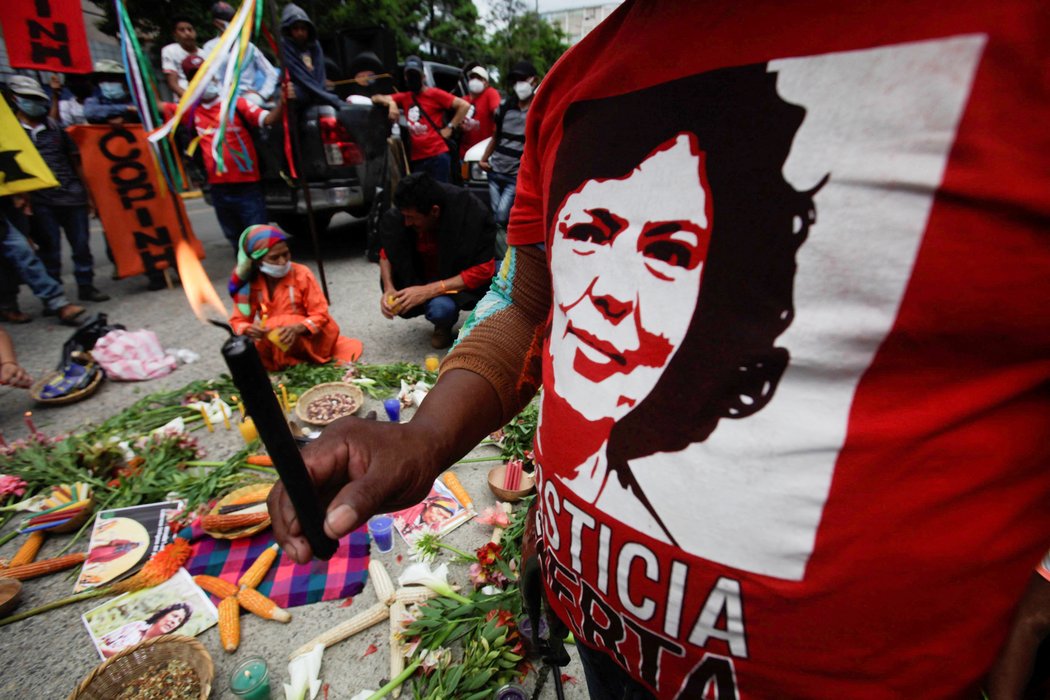Expression
Con mucho pesar recibimos la noticia del fallecimiento del comunicador social Ricardo Avila colaborador de @LAMETROHN
— CPH Honduras (@ColegioPeriodi1) May 29, 2022
Con el descenso de Avila suman 93 muertes violentas de personas vinculadas a la prensa hondureña, hoy más que nunca exigimos justicia. https://t.co/qv4it7Tgmr pic.twitter.com/455ZzlSmuA
On 26th May 2022, social communicator and camera operator Ricardo Ávila was shot in the head in the south of Honduras. He was transferred to a hospital in Tegucigalpa but died from his wounds on 29th May. The attack took place as Ávila was travelling on his motorcycle from the town of Marcovia, where he lived, to Choluteca, where he worked at Metro TV. The police said they were investigating the crime as a potential robbery, despite the fact that the assailant did not take any of the communicator’s belongings, including his motorcycle, mobile phone or the money that he had with him.
The Committee to Protect Journalists (CPJ) called on the Honduran authorities to conduct a credible and exhaustive investigation into the killing. In his work, CPJ reported, Ávila covered social movements in Choluteca and protests against controversial economic development zones, known as ZEDEs. Metro TV is reportedly the only local outlet to cover these protests. Honduran civil society organisation C-Libre said Ávila may have been killed in retaliation for reporting on these topics, and alleged that the communicator had changed his mobile phone number only days before his murder because he believed his phone had been tapped.
Association
🇭🇳 #Honduras: Condenan al empresario que planificó el asesinato de Berta Cáceres → https://t.co/d91gZrDUEY
— Servindi (@Servindi) June 21, 2022
El @PJdeHonduras condenó a 22 años y 6 meses de prisión al empresario Roberto David Castillo Mejía, autor intelectual del asesinato de la ambientalista #BertaCáceres. pic.twitter.com/y3RClb6eJZ
On 20th June 2022, Roberto David Castillo Mejía was sentenced to 22 years and six months in prison for coordinating the murder of environmental and Indigenous rights defender Berta Cáceres Flores, on 3rd March 2016. Castillo was president of DESA, whose Agua Zarca dam project was opposed by Cáceres and other human rights defenders in the region. Documentary evidence and testimony led to the conclusion that Castillo directly participated in the crime, the court said. He allegedly paid the hitmen, gave logistical support and provided resources to those already convicted for the assassination.
Defenders continue to face acute risks, say human rights groups
Honduras: Rights Agenda for the Castro Administration https://t.co/QJL49WFn4o
— Human Rights Watch (@hrw) June 30, 2022
On 27th May 2022, public prosecutor Karen Almendares was killed in front of her home in Nacaome, Valle department. Almendares worked in the Special Prosecutor’s Office for the Environment. The National Human Rights Commissioner (CONADEH) issued a statement condemning the assassination and stating that law has become a dangerous professional field in Honduras. Since 2014, CONADEH said, over 200 lawyers and legal professionals had been killed under violent circumstances. Among them were criminal lawyers, judges, public prosecutors and defenders, former justice operators and legal advisors to trade unions and campesino organisations.
A director of the Asociación por la Democracia y los Derechos Humanos de Honduras (Association for Democracy and Human Rights of Honduras - Asopodehu) said legal professionals working on issues such as the environment, land rights, human rights and the defence of excluded groups were more likely to face threats. Impunity and lack of effective protection networks have encouraged these crimes, according to civil society groups.
On 30th June 2022, Human Rights Watch (HRW) published an open letter to President Xiomara Castro outlining several recommendations regarding human rights policy. Violence against human rights defenders and journalists was among the key issues highlighted by the organisation. While Honduras is one of the most dangerous countries for human rights defenders and journalists in Latin America, the protection mechanism created to address the issue has its capacity undermined by serious structural and operational flaws. The mechanism’s director told HRW that its budget for protective measures has been frozen at the same level (20 million lempiras or US$806,000) since 2019, despite requests for increases. Lack of appropriate funding and human resources have been key challenges, as well as the lack of transparency regarding the mechanism during previous administrations.
In this regard, HRW recommended that Honduras establish a working group, including civil society groups, UN agencies, prosecutors and officials from the executive and congressional branches, to review the legal framework, budget and practices of the protection mechanism. The organisation also made several recommendations regarding laws that constrain the exercise of the freedoms of peaceful assembly and expression in Honduras.
